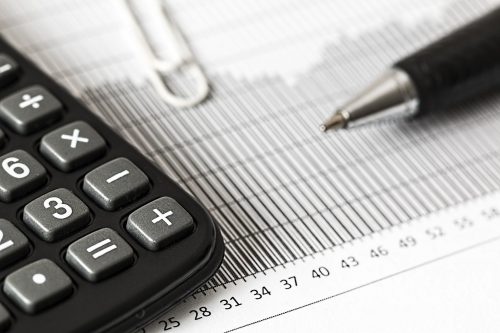Advertisements
With the average FICO credit score in the US reaching a record 703 last year, many Americans are now enjoying the benefits of having good credit. with a solid credit score, have better access to loans and even enjoy lower auto insurance rates, among many other benefits.
But once you hit that good or great three-digit number, you'll need to practice some consistent behaviors to maintain it throughout your life. Fortunately, it is not difficult once you understand how the credit score. And if your credit is still not as high as you'd like, the tips we share below can help you improve your score, too.
Advertisements

1. Pay your bills on time
Your payment history makes up 35% in calculating your FICO score. We recommend that you always pay your bills on time and in full, but even if you can only pay the minimum balance, you should always meet your due date.
Advertisements
Whether it's your credit card or utility bill, pay all kinds of financial commitments on time. Even parking tickets and overdue library books can show up on your credit report. If you're having trouble remembering due dates, set up AutoPay which will automatically transfer funds from your account on a certain date.
And if you're having trouble paying your credit card bill due to the coronavirus, know that most card issuers offer financial assistance programs that may allow you to defer your monthly payment, waive any late fees, or increase your credit line. credit.
2. Keep your credit balances low
Having a low balance and a high credit limit is the perfect equation for a healthy credit utilization rate (CUR). This simple percentage measures how much credit you're using (your balance) compared to how much credit you have available on all your cards (your credit limit). You may have heard your CUR described as your "debt to credit ratio."
It's important to note that your CUR is not just the dollar amount you owe, but the percentage of how much your debt balance compares to your credit limit.
3. Make sure your oldest credit account stays open
Even if you no longer use your first credit card, you may want to keep the account open. Make sure you dust off the card every few months or so to keep it active, or you can load a small recurring subscription (like your iCloud or Hulu subscription) to the card, and pay for it each month with autopay.
Read More: Some things you need to know about credit cards
4. Load up the basics
To get the most out of your credit card, you need to use it regularly. Otherwise, card issuers may close your account if they decide it's inactive, which may affect your credit score short term.
With certain credit cards, you can earn rewards for the spending you're doing anyway by loading up on your basics like gas and groceries. Just make sure you pay your balances on time and in full each month to really use these cards to your advantage. You can set up automatic payment to make sure you don't miss payments, or you can make periodic payments throughout your billing cycle to keep your statement balance low. The lower your statement balance, the lower your credit utilization rate and the better your credit score.



